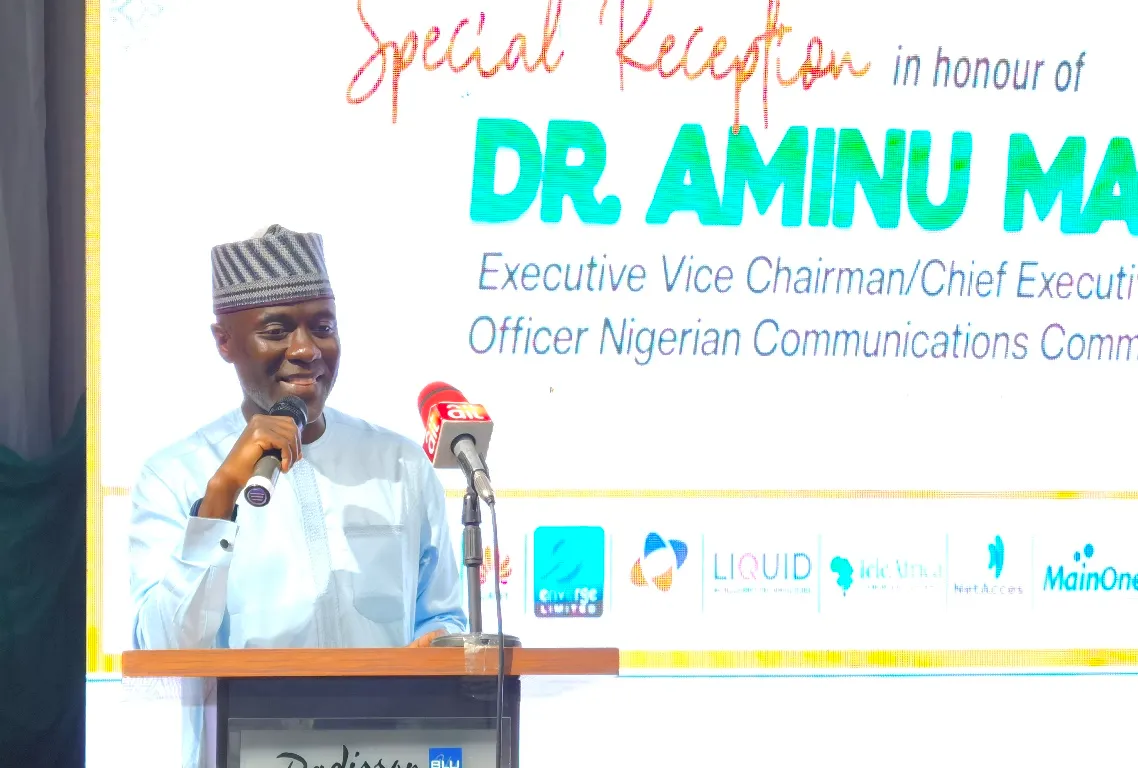The Executive Vice-Chairman, EVC, of Nigeria Communications Commission, (NCC), Dr. Aminu Maina has expressed concern about the high number of Nigerians still on 2G networks when other countries are already talking about 6G networks.
Maina who disclosed this when the Association of Telecommunications Companies of Nigeria, ATCON gave him a special reception in Lagos recently, called on the industry leaders to focus on promoting 4G and above technologies.
Recall that the recent data from the NCC revealed that about 57.55 per cent of the Nigerian internet subscriptions are on 2G; leaving the 3rd, 4th and 5th generations to share the remaining 43 per cent.
He noted: “Today, we celebrate Nigeria having almost those 200 million connections but when we look deep into it, we realise that more than half of those are 2G.
“So, when we have guys like you, why are we still producing smartphones with 2G connections, why aren’t you talking about 4G and above?
“We have the MD of Mainone here who was very active in the broadband plan, I’m sure MD you never planned to have a majority 2G connector,” EVC said.
READ ALSO: Copyright Infringement: MTN petition successful as Court allows AGF to take over NCC’s case against CEO, Karl Toriola
The first generation, 1G network refers to the very first generation of cellular networks. Cellular technology employs a network of cells throughout a geographical area using low-power radio transmitters.
2G is the second generation of wireless networks designed to improve on analog with digital circuit-switched solutions.
3G is the third generation of wireless mobile telecommunication technology. It is the upgrade over 2G, 2.5G, GPRS and 2.7G enhanced data rates for GSM evolution networks, offering faster data transfer, and better voice quality.
4G is the fourth generation of mobile network technology, which is the successor of 3G and preceded the 5G network. It provides a much higher data transmission speed than its successor networks, making it preferable at this stage for a fast lifestyle.
5G is the fifth generation of wireless cellular technology, offering higher upload and download speeds, more consistent connections, and improved capacity than previous networks. 5G is much faster and more reliable than the currently popular 4G networks and has the potential to transform the way we use the internet to access applications, social networks, and information.
However, NCC’s statistics shows that 4G follows with 32.11 while 3G and 5G are 9.17 and 1.18 respectively.

 Entertainment1 week ago
Entertainment1 week ago
 Business1 week ago
Business1 week ago
 Health1 week ago
Health1 week ago
 Business1 week ago
Business1 week ago
 Latest1 week ago
Latest1 week ago
 Entertainment1 week ago
Entertainment1 week ago
 Football1 week ago
Football1 week ago
 Entertainment5 days ago
Entertainment5 days ago

